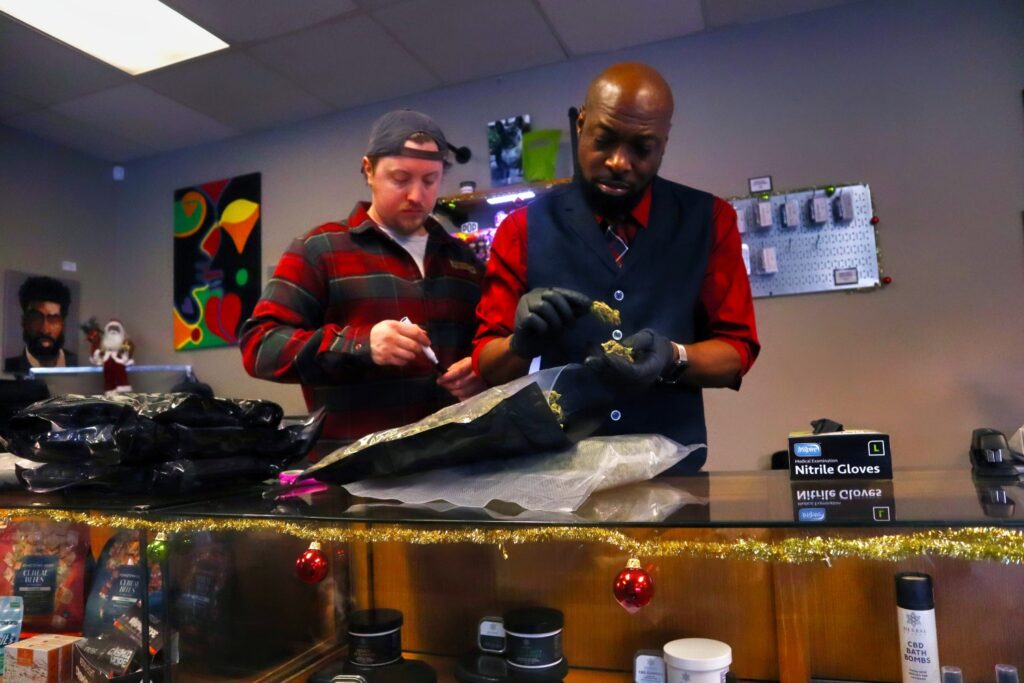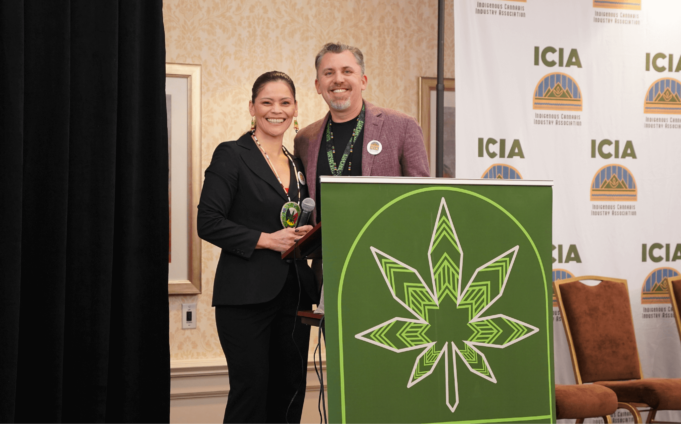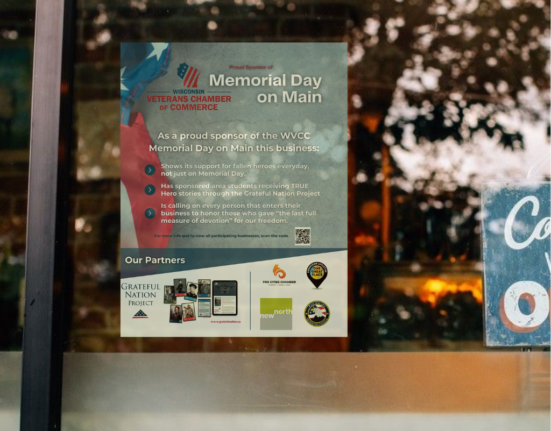
This story first appeared in Blueprint365 Magazine. To request a free copy, click here.
The people are asking for it and the Governor has been pushing for it. The benefits for the state are tangible in health and tax revenue as Wisconsin is getting left behind its neighboring states.
A future of legal marijuana is possible, and advocates and businesses have been hopeful for the changes that legalization can bring to their communities. Legislative challenges remain, but Wisconsin advocacy groups, UW-Platteville and businesses like Herbal Aspect are anticipating a change soon.
That change is likely to start from activists working for legalization. Entrepreneur Rob Pero founded the Indigenous Cannabis Industry Association (ICIA) with the intention of promoting the health of communities and stressing the economic opportunities for indigenous tribes around Wisconsin and across the United States.
“The largest opportunity in cannabis is Indigenous cannabis,” Pero said. “There’s 574 sovereign nations within the United States and those sovereign nations have the authority to basically do whatever they want and self-regulate and self-determine” what industries are best for them.
That’s how Indigenous nations got into the gambling business in the 1980s. Reliance on that industry has come into question recently, as the COVID-19 pandemic devastated revenue for more than a year, leading many to call for tribes to diversify revenue streams. Cannabis could provide that diversity.
The same right to self-determination and governance that allowed them to build casinos could allow them to start producing and selling cannabis within their sovereign borders; however, most have opted not to push the issue in order to avoid legal entanglements with the state and federal government.

Regardless, Indigenous tribes are poised to take on Wisconsin’s potential cannabis industry by storm, Pero said.
“For our Indigenous people, knowing that we have all these opportunities through our rights as sovereign nations, and knowing that we’re also the most disproportionately impacted by mortality, chronic Illness, diabetes and also opioids — we need this plant medicine more than ever,” Pero said.
Meanwhile, in Madison, one business owner has been teetering with the few allowances to sell cannabis in the state. Alan Robinson, owner of Herbal Aspect, founded the business to address his own needs and struggles to find an alternative to treating his depression.
Robinson works strongly on education and “writing the playbook,” as he calls it, on how cannabis businesses should operate. The largest hurdle he sees is educating Wisconsinites on how the product he sells in his stores is virtually no different than what you can buy in Illinois, Michigan, Detroit and all other states where cannabis is fully legal.
“Throughout this entire adventure, it has been a learning and educational experience. It just dawned on me that I can educate the public as much as I want, but if I have bad actors on my side, then it’s not going to fix the problems,” Robinson said.
Misinformation on the realities of cannabis usage, especially on the side of legislators and other dispensaries, is a mounting issue that Robinson feels is an uphill battle.
His business has its own unique set of standards to make sure products are in line with Herbal Aspect’s expectations. A level of freshness, composition of the plant, potency and how products are marketed cause Robinson to weigh whether to sell certain cannabis products in his stores. He has a strong belief in not carrying anything that looks like it could be marketed to children. Products with bright flashy colors, childish names and flavors that resemble candy are barred from sale in his stores.
His standards have led to multiple successful months hitting six figures in sales and has Robinson eyeing continued expansion. Currently, Robinson operates three Herbal Aspect dispensaries in Madison and has his eye on another spot in Monona, but currently lacks the confidence to pull the trigger.
Cannabis law reform in Wisconsin would increase his confidence in expanding without feeling like there’s a target on his back.
The legislative situation
Currently, Robinson and others can operate because cannabis derivatives like CBD and Delta 9 THC are legal.
Republican Assembly Speaker Robin Vos recently introduced legislation to legalize medical cannabis in very limited cases, which would fall considerably short of what Robinson and other advocates want, and would lag behind most neighboring states. Other legislators have been pushing for full legalization for both recreational and medical.
Robinson, like others advocating for Wisconsin cannabis law reform, have been putting a lot of stress on Assembly Bill 506, which would allow anyone 21 years of age or older and over to possess cannabis for recreational purposes, any one of any age to possess cannabis for medical purposes, outlines retail allowances for cannabis, tax for production, processing, distributing and selling cannabis.
“When you’re asking me about how it’s going to impact my business, Assembly Bill 506 would allow me to expand confidently into racist white-consin,” Robinson said.
Representative Darren Madison, D-Milwaukee, along with 25 other representatives, introduced Assembly Bill 506 on October 18, 2023.
“We’re creating jobs,” Madison said. “We’re stabilizing people’s lives, especially folks who are coming out of being incarcerated and we are contributing to our local and state economy in ways that have never been done before.”
It is estimated that there is a potential increase of tax revenue of more than $265 million from the cannabis industry over the first three years, according to Department of Revenue estimates. The bill specifies that 60% of that revenue would be used for community reinvestment programs – specifically to benefit communities disproportionately affected by cannabis criminalization re-enter the workforce and help stabilize their lives.
“It’s really hard for folks to find work (after incarceration). It’s really hard for these folks to find stable housing, and it’s really hard for these folks to be able to start a business,” Madison said.
Other states have similar programs, but Wisconsin’s Assembly Bill 506 differs in not having the lottery systems to enter these types of programs. Madison wants to create a firm access point to use programs for community reinvestment instead of having people hold on to hope that it’s their turn.
Robinson thinks that the 60% tax community reinvestment program is the very least Wisconsin could do, especially as it concerns reparations and continued disenfranchisement of Black communities.
“A 60% excise tax to help the communities that they’ve negatively impacted is literally the best they can do,” Robinson said.
The role of higher education
Higher education has found its own place in advocating for change in Wisconsin and preparing for a thriving cannabis industry. University of Wisconsin-Platteville offers the only cannabis agriculture certificate programs in the state. UW-Platteville is currently partnered with Green Flower, a cannabis education company that offers cannabis agriculture programs across the country.
“(UW-Platteville) thought it might be an interesting idea to get out in front of it before anybody else has it in the state, and before the state goes legal,” said Daniel Kalef, Chief Growth Officer of Green Flower. “We (had) never worked with a school that was in a state (where) it wasn’t legal.”
Kalef has, like many others around the state, expected cannabis legalization years ago. The program is abundantly clear that students in its programs are being set up for a career in cannabis, but will likely have to work in another state – at least for now. Kalef sees it as a big loss in economic opportunity.
“Because cannabis isn’t federally illegal … let’s pretend Wisconsin is legal. If I own a dispensary in Wisconsin, I can’t go buy product from Illinois and sell it in Wisconsin,” Kalef said. “Everything has to be sold in a state where it’s legal, has to be grown in that state, has to be extracted and products have to be produced in that state and has to be labeled, has to be shipped, has to be sold in that state. It creates its own ecosystem.”
Behind the scenes of cannabis, due to federal regulations, is that the industry is entirely domestic within each state where it’s legal. Job creation for the cannabis industry through the entire supply chain, from agriculture to retail, is entirely within state lines.
Green Flower currently works with 27 universities around the country. It provides educators to the program, as most universities do not have the existing subject matter expertise because cannabis is a relatively new industry, Kaelf said.
Green Flower, and Kalef, have also seen how the industry has matured over the years as more and more states legalize cannabis.
“In states where it’s been around for a long time, you do start to see some consolidation. You’re seeing the industry mature. It’s growing up,” Kalef said. “Typically, when it first becomes legal in the state, everybody wants to have a business, everybody wants to have a farm or manufacturing or dispensary, and so lots of people do it and you see contraction as it matures.”
Maturity in the industry has hit across the country, where states will follow suit, and places like Green Flower, Herbal Aspect and the ICIA are ready for it. Lawmakers like Madison have taken notes about what works and what will do Wisconsin best as the people are largely for cannabis legalization.
Wisconsin is ready to take on the cannabis industry by storm … eventually.






